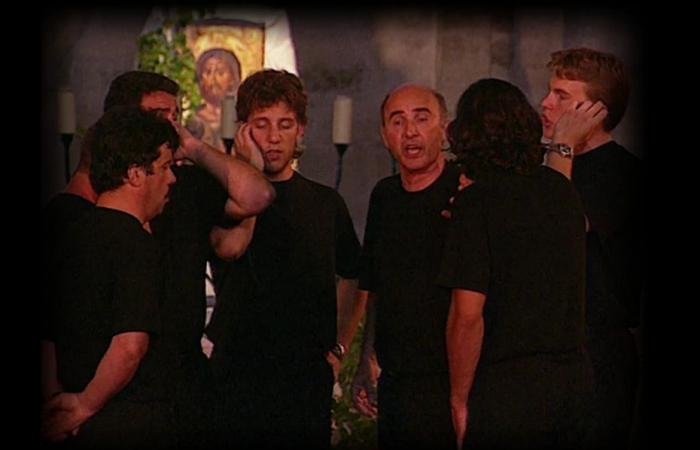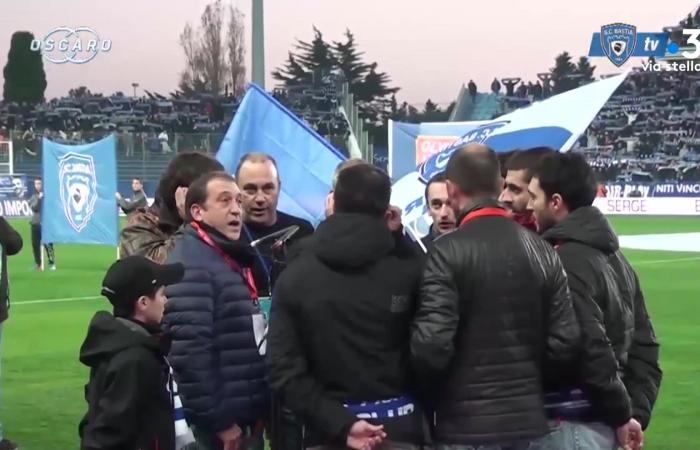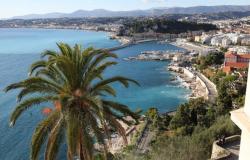Composed by a Jesuit at the end of the 17th century, and designated as the national anthem of Corsica in 1735, Dio vi salvi Regina remains particularly popular on the island today. Written to the glory of the Virgin Mary, it is now sung well beyond the framework of masses, and will be heard by Pope Francis during his visit to Ajaccio, this December 15.
Company
From daily life to major issues, discover the subjects that make up local society, such as justice, education, health and family.
France Télévisions uses your email address to send you the “Society” newsletter. You can unsubscribe at any time via the link at the bottom of this newsletter. Our privacy policy
For Julien, in his thirties, it is singing that accompanies all the major events of his life. “At my wedding, we sang it. At my son's baptism, too, as at my father's funeral. However, I am not very religious, and I rarely go to mass. But it's always been like that, since I was little.“
Like his entire family, and the vast majority of his friends, Julien knows Dio vi salvi Regina like the back of his hand, “as some people know the Marseillaise word for word“, he slips into a smile. It is, after all, he adds, “our national anthem“.
It must be said that the Dio vi salvi Regina has spanned the centuries. Some legends believed, for a time, that it was written in 1720 by a shepherd from Niolu… But it was rather at the end of the 18th century, around 1675, that this song to the glory of the Virgin Mary was written. written. Composed by an Italian Jesuit, Saint Francis of Geronimo, this text is in fact directly inspired by “Salve Regina”, one of the most popular religious hymns of the Middle Ages, and still sung in monasteries today.
From 1681, the words of the song were printed in the Christian doctrine explained in verse, then in 1704 in the Summary of Christian Doctrine, edited by the then archbishop of Genoa, Monseigneur Giambattista Spinola.
The Dio vi salvi Regina quickly spread throughout Italy, before falling into oblivion. With the exception of Corsica, where it remains particularly popular. In January 1735, it even became the rallying song of the insurgents, while a consult held in Corte saw the national leaders proclaim the break with Genoa and the sovereignty of the island. Independent Corsica chose the Virgin Mary as its protective queen, and the Dio vi salvi Regina as its national anthem.
Sung in all Corsican churches, the popularity of the hymn continues… And over the centuries, even ends up leaving the clerical framework, now sung in evenings, private meetings, or even in larger public events or political demonstrations. More than a song, Diu vi salvi Regina has established itself as an intellectual and cultural pillar of Corsican society.
On November 12, 1976, the Corsican singer Tino Rossi performed it again, for example, in the streets of Ajaccio, surrounded by a large audience, as part of the show Midi Première, then broadcast on TF1.
duration of video: 00h02mn24s
Tino Rossi singing Dio vi Salvi Regina, 1976.
•
© THEN
At the Furiani stadium – as in particular during the commemorations of the disaster of May 5, 1992 – it is not uncommon to hear it echo before the whistle blows to kick off the match. And the anthem does not stop in the stands of Armand Cesari: the Squadra Corsa regularly sings it before its matches.
Nothing surprising according to Father Georges Nicoli: “We have a strong identification in Corsica, both cultural and religious. And it is true that a whole part of the history of the island took place where the two were intimately linked, believes the Bastiais priest. When Pascal Paoli declares the Immaculate Conception as Queen of Corsica, he truly places religion and politics together.”
Throughout history, and taking into account the application and the particular perception of how secularism is characterized and must be observed on the island – a secularism, after all, “to Corsica” – God save you Queen “has taken on another scale, another place, and has gone beyond the walls of our parishes and our churches, continues Abbot Georges Nicoli. It is sung in stadiums, in concerts… Almost everywhere, where Corsicans gather, are happy to be together. Or sometimes in more difficult times, like the Furiani disaster.“
Even if it means putting aside the principle of secularism? “The notion of secularism is not experienced in the same way in Corsica as on the continent“, recalls the abbot. The resumption of the Diu outside the framework of churches, he continues, ultimately depends on “neither political authorities, nor religious authorities, in the sense that this song was assimilated by the people themselves.“
In Corsica, notes Father Nicoli, secularism is “more peaceful, more diplomatic, it can be listened to between the two authorities and allows the Diu to be chanted quite easily. And even so, he decides, a political or even clerical regime would like to prohibit the use of this song, it is so anchored in the genes of the Corsican people that it will be difficult to modify anything.“
Because for the priest, if the Diu vi salvi Regina retains, even today, its popularity, it is because it carries “a message of hope, which turns us towards heaven. With the Virgin Mary, we have the impression that our Christian life takes on a much more concrete meaning, sung in polyphony in the manner of here, through the habits and customs of here, and this gives it a much more local character. , more personalized. On the 8000 km2 that this island represents, we have the grace to have this song which brings together all ages, all regions, all micro regions.“
And which should continue to bring them together for many more generations.







